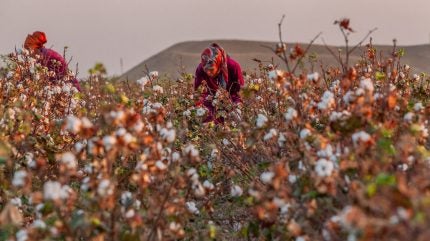
This advocacy was particularly relevant as the EU engaged in dialogue with representatives from Central Asian nations, aiming to fortify cooperation during the inaugural EU-Central Asia Summit.
The event was held from 3-4 April in Samarkand, Uzbekistan.
Heads of state from Kazakhstan, the Kyrgyz Republic, Tajikistan, Turkmenistan, Uzbekistan, and representatives from the EU concluded several key agreements at the summit.
The parties agreed to elevate EU-Central Asia relations to a strategic partnership level, the EU reaffirmed its dedication to the objectives established in the 2019 EU Strategy on Central Asia.
A commitment was made by all participants to collaborate in fostering peace, security, and democracy while adhering strictly to international law principles as outlined in the UN Charter. This includes upholding state sovereignty and territorial integrity within internationally recognised borders.
All states have reaffirmed their obligation to avoid using or threatening force in international affairs and emphasised the importance of resolving conflicts peacefully while respecting international humanitarian law.
The summit recognised the strategic significance of enhanced cooperation on critical raw materials to ensure secure and diversified supply chains. A Declaration of Intent signed at this summit will further collaboration in this domain, bolstering economic resilience and supporting a transition towards a greener and more digital economy.
The EU expressed approval for all Central Asian partners’ decision to participate in the Global Methane Pledge.
Continued implementation of innovative water-energy cooperation strategies was agreed upon by both EU and Central Asian leaders. This aims at delivering impactful actions for the protection and efficient utilization of water resources. Additionally, there was an agreement to strengthen efforts towards improving conditions in both the Aral Sea region and its broader basin.
Lastly, both EU and Central Asian leaders reiterated their shared commitment to upholding rule of law, human rights, and fundamental freedoms as core values.
Prior to the summit, the campaign dispatched a communiqué to senior EU officials, advocating for the prioritisation of workers’ rights, including the rights to freedom of association and collective bargaining, within the context of discussions with Uzbekistan and Turkmenistan.
The campaign insisted that safeguarding these rights in Uzbekistan is critical to mitigating persistent forced labour concerns and aligning with international labour standards, which are prerequisites for attracting ethical sourcing practices from worldwide brands and retailers.
In Turkmenistan, despite initial measures by the government to confront systemic state-enforced forced labour during cotton harvesting, there remains an imperative need for a focus on labour rights and empowering workers. Such measures are crucial for enacting substantive reforms that tackle the underlying issues of forced labour.
Cotton Campaign senior coordinator Raluca Dumitrescu said: “Freedom of association and collective bargaining rights are the foundation of workplace democracy and key to stable supply chains. The EU should use the Summit to reinforce that protecting these rights is essential to conform to ILO standards and best practices for global supply chain governance.
“In Uzbekistan, despite the elimination of systemic state-imposed forced labour in the cotton harvest, restrictions on these rights contribute to ongoing risks of forced labour and other violations in the sector. On the other hand, ensuring that workers can meaningfully exercise these rights would provide brands and retailers with the assurances needed to begin sourcing cotton products in accordance with their requirements under laws governing human rights due diligence and supply chains in their countries of import—including across the EU.”
Background context
Uzbekistan has already eradicated the state-directed forced labour from its annual cotton harvest over the past three years, but risks associated with forced labour persist.
The government continues to exert undue influence over farmers and the cotton harvest process. Instances of coercion and pressure against workers striving for better working conditions have intensified, Cotton Campaign remarked.
In November 2024, a formal grievance was lodged by the International Union of Food, Agricultural, Hotel, Restaurant, Catering, Tobacco and Allied Workers’ Associations (IUF) against Uzbekistan’s government with the ILO Committee on Freedom of Association.
Subsequently, in March this year the EU Commission undertook its second assessment mission to Uzbekistan as part of its evaluation of the country’s adherence to human and labour rights conventions under the Generalised Scheme of Preferences Plus (GSP+).
In Turkmenistan’s case, although there has been engagement with the International Labor Organization (ILO) through two consecutive Roadmaps for Collaboration facilitating ILO monitoring of cotton harvests (albeit with impediments), systemic state-imposed forced labour persists during these harvests. The government also heavily suppresses civic freedoms essential for combating forced labour and ensuring lasting reforms, Cotton Campaign said.
Workers lack independent trade unions for protection against workplace forced labour; contrarily, existing unions, which lack independence or representativeness, are often complicit in perpetuating forced labour by organising financial collections from state employees to pay substitute cotton pickers, it noted.



